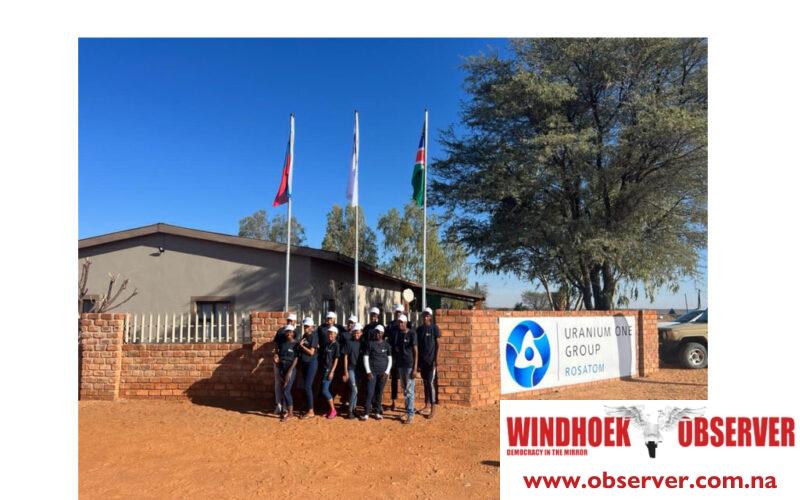CHAMWE KAIRA
At a high-level meeting, held in Mariental on 17 June, international scientists from UNESCO, Malcolm Siegel and Amie Legget mentioned that more information, namely hydrogeological and hydro geochemical data, is needed to make acknowledgeable decision regarding a major In-Situ Recovery (ISR) uranium mining project in the Leonardville area, Omaheke Region.
Headspring Investments (HSI), which holds eight active Exclusive Exploration Licenses (EPLs) and eight active Environmental Clearance Certificates (ECCs) for the EPLs, has said it fully concurs with the views of these scientists.
“We also confirm that we are prepared to continue and complete exploration drilling, conduct comprehensive studies and provide the required information (data) referred to by the UNESCO representatives.”
Headspring said the data can be obtained through work on a 5-spot test (small pilot site – 15×15 meters covers 0.00002% of deposit), which is being built in compliance with all international safety standards and includes a strong monitoring system.
An expert from the International Atomic Energy Agency (IAEA), Alexander Boytsov, invited by HSI, emphasized in his presentation that the target of the test is to determine main technical parameters of the project and make a decision on its further development.
He also mentioned that ground water research is a part of the uranium exploration stage before mining starts. The pilot plant experience will also help to conduct a comprehensive, detailed and accurate water analysis as soon as possible to obtain data on the degree of natural contamination of water with uranium decay products and then take measures to reduce risks and protect the health of those farmers who have boreholes in the Auob 3 on the ore body.
Headspring Investments said it is absolutely open for any technical discussion and the company believes that decisions regarding the project will be taken based on scientific facts and not irrational fears and unfounded rumours. This point was also supported by the Governor of the Omaheke Region, Pijoo Nganate, as well as the Environmental Commissioner, Timotheus Mufeti.
Headspring said it appreciates the initiative from the Minister of Agriculture, Water and Land Reform Calle Schlettwein to create a platform for an open dialogue and facilitate a high-level discussion regarding uranium exploration in the Stampriet Water Basin and thanks all the participants who travelled from far and near to be at the event and contribute to such an important discussion.
In a separate an update, the Namibia Agriculture Union said the Ministry of Agriculture, Water and Land Reform in conjunction with UNESCO, organised the meeting proposed in situ leach uranium mining in the Stampriet Transboundary Aquifer System. A pre-meeting with 42 participants took place with ORASECOM in South Africa. ORASECOM is the transboundary river basin organisation of four countries – Botswana, Lesotho, Namibia and South Africa forming the Orange – Senqu River Commission.




